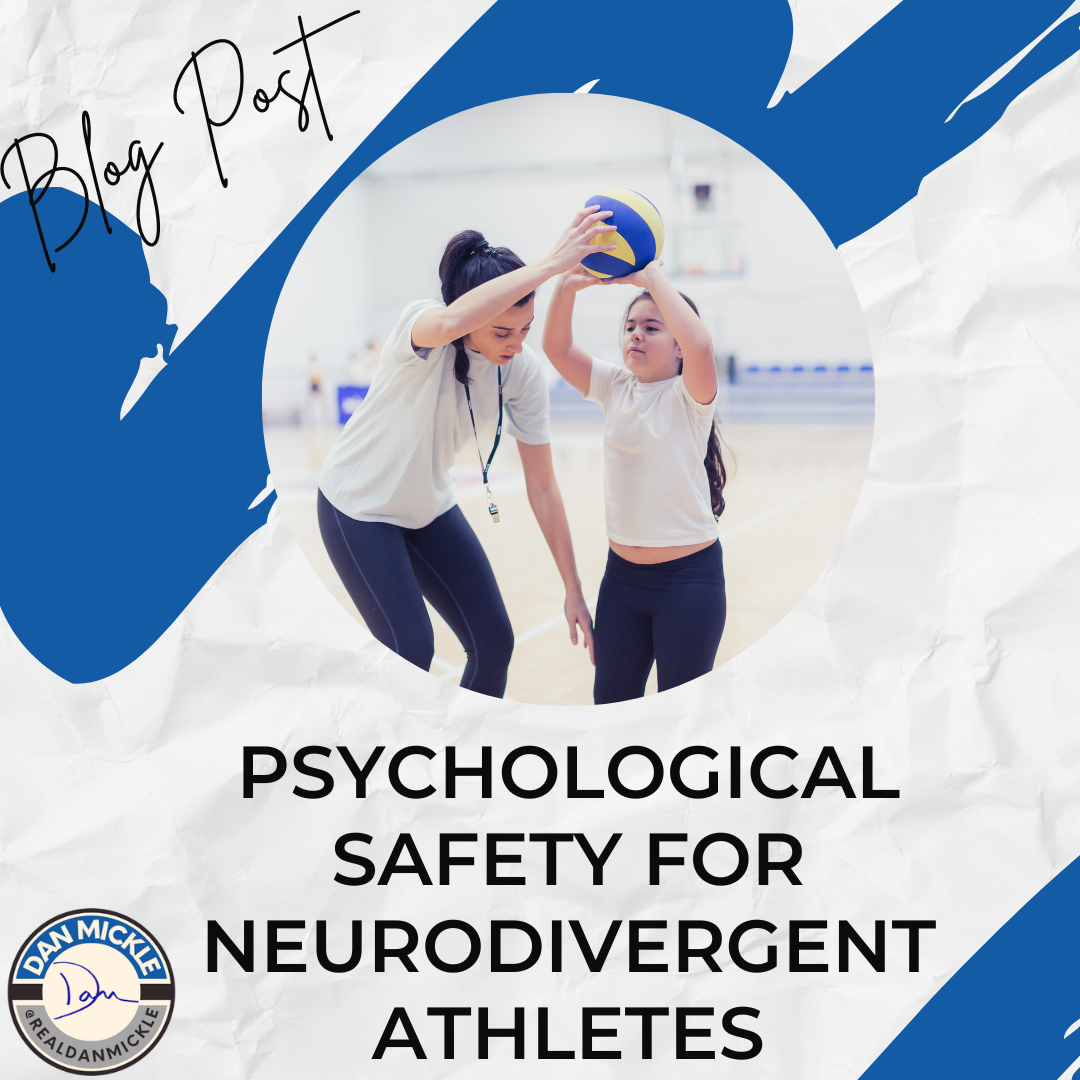Psychological safety gets tossed around a lot in coaching circles these days, but let’s be honest—most of the time, it’s treated like an afterthought. Sure, every coach wants their athletes to feel comfortable and supported, but when it comes to neurodivergent athletes, “feeling safe” takes on a whole different meaning.
Psychological safety is the belief that one can take risks, make mistakes, and be their authentic self without fear of punishment, embarrassment, or exclusion. For neurodivergent athletes—those with ADHD, autism, dyslexia, sensory processing differences, or other neurological variations—this safety is not just about avoiding the harsh coach who yells a little too much. It’s about knowing they won’t be judged for stimming, needing extra processing time, or struggling with certain social cues.
The Standard Approach Falls Short
Most psychological safety advice for teams focuses on communication, trust, and reducing fear of failure. And while that’s important, it often assumes a level playing field when it comes to how athletes process information, emotions, and social interactions. Neurodivergent athletes often experience the world differently, and a “one-size-fits-all” approach can actually increase their stress rather than alleviate it.
Let’s take the classic “open-door policy” that many coaches promote. “Hey, if you have a problem, just come talk to me!” sounds great in theory, but for an autistic athlete who struggles with initiating conversation or reading social cues, that’s not a safety net—it’s a roadblock. Or how about the “We’re all about accountability here” speech? For an athlete with ADHD who genuinely forgot the team rule because their working memory functions differently, being “held accountable” can feel like a personal attack rather than a learning opportunity.
Building Psychological Safety for Neurodivergent Athletes
So, how do we actually create an environment where neurodivergent athletes feel safe, included, and empowered? It takes more than good intentions. Here’s what actually works:
Predictability is Key
Uncertainty is a major stressor for many neurodivergent athletes. Having consistent routines, clear expectations, and structured practices can go a long way in reducing anxiety. If a schedule changes, communicate it as early as possible.
Clarity Over Assumptions
Neurodivergent athletes often struggle with implied rules or unspoken expectations. Instead of saying “hustle more,” say “I need you to sprint to the baseline in under five seconds.” The more concrete, the better.
Failure as a Learning Tool, Not a Punishment
Many neurodivergent athletes are perfectionists—not because they want to be the best, but because they’ve been corrected so often in their lives that failure feels catastrophic. Coaches must be intentional in framing mistakes as part of growth rather than as something to “fix.”
Alternative Communication Options
Some athletes struggle with verbal processing but thrive with written instructions or visuals. Others may need time to process before responding to feedback. Being flexible with communication styles ensures they’re actually receiving and understanding what you’re saying.
Sensory Considerations Matter
Loud whistles, bright lights, itchy uniforms—these can be minor inconveniences for most but overwhelming obstacles for some neurodivergent athletes. Creating an environment where they can advocate for their needs without judgment is essential.
Model Emotional Regulation
Neurodivergent athletes often struggle with emotional regulation, so seeing a coach handle pressure calmly and effectively teaches them more than any lecture ever could. If a coach is quick to frustration, guess what? That anxiety spreads to the team.
Encourage Self-Advocacy, But Don’t Expect It Immediately
Many neurodivergent individuals have been conditioned to suppress their needs to fit in. Creating a safe space where they can gradually express their needs without fear of consequences is crucial. Celebrate when they do speak up!
The Long-Term Impact
When neurodivergent athletes feel psychologically safe, their engagement, confidence, and long-term participation in sports increase. They’re more willing to take risks, problem-solve, and embrace their unique strengths rather than hide them.
At the end of the day, psychological safety isn’t just a coaching philosophy—it’s a commitment to meeting athletes where they are, not where we assume they should be. And when we get it right, we’re not just making better athletes—we’re making sports better for everyone.
So, next time you think about psychological safety, don’t just check a box. Build an environment where neurodivergent athletes feel like they belong—because that’s when real growth happens.


